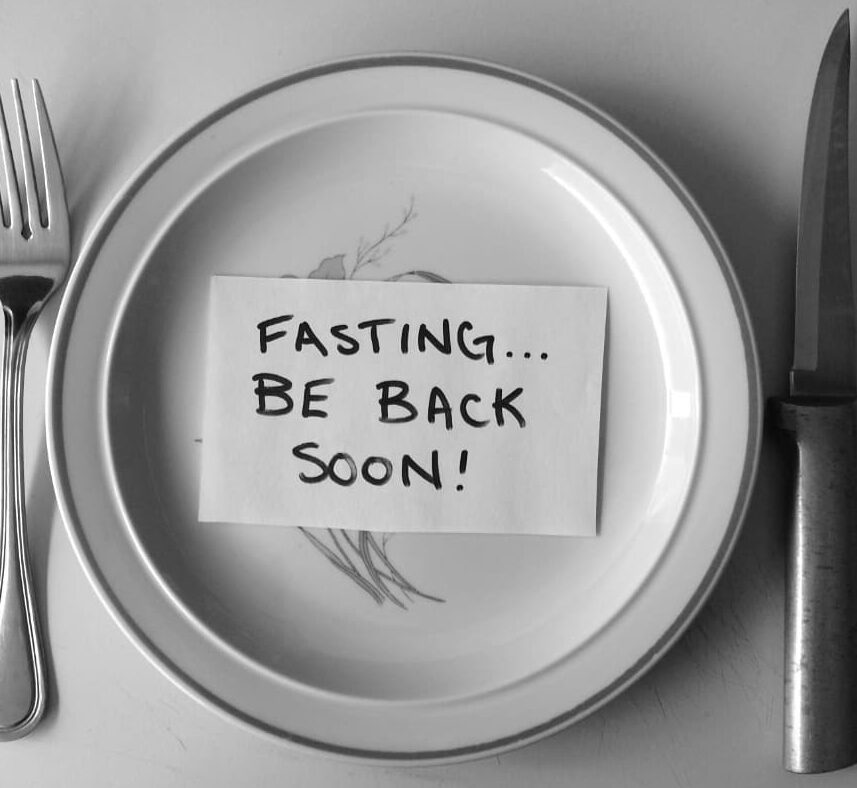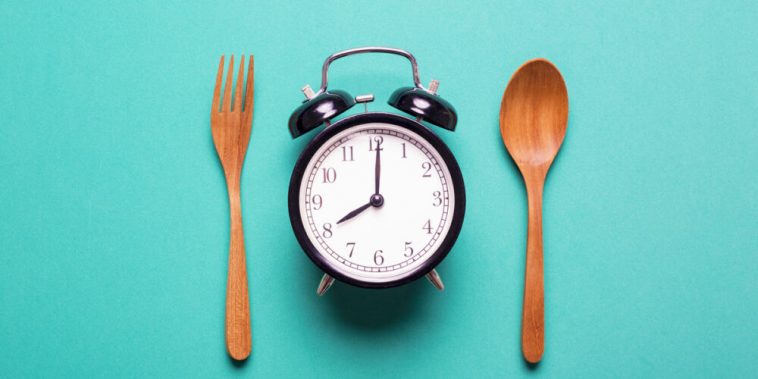Every other year there is a dieting trend that takes hold of the public consciousness and then leaves as fast as it appeared. Paleo, Keto, calorie count, Weight Watchers or Atkins, all have their promoters and detractors. In the end, most of them pass as a fad. Intermittent Fasting, however, has been the subject of watercooler conversations for at least a year now, and it doesn’t seem to be going away anywhere fast. Because of my largely anecdotal experience with the scientific aspect of Intermittent Fasting, I consulted an old acquaintance who works both as a gastroenterologist and nutritionist. Since she preferred to answer all of our questions in anonymity we’ll call her Dr. A.
Let’s first get on the same page about what Intermittent Fasting (IF) is. In IF a person switches between strict periods of fasting and non-fasting. You could make the case that IF has roots in religious practice. Most prominently in Islam with Ramadan, but also in Hinduism, Judaism and certain types of Christian communities, fasting is an observed practice. In the popular practice of IF there are different approaches to fasting:
- Alternate Day Fasting (ADF): ADF is the strictest form of Intermittent Fasting. You would typically fast for 24 hours and then eat for 24 hours. A fast day is usually defined as a day where your calorie intake is below 600.
- 5:2 Fasting: The 5:2 version of ADF is a bit more forgiving. One would fast two days of the week and eat regularly on the other five days.
- Time-restricted Feeding (TRF): TRF is an umbrella term for time restrictions during every day, where one either fasts or eats. The most popular split is 8:16 (16-hour fast and 8 hours of eating). The strictest version goes up to a 20:4 split.
This should be enough of an introduction in order to follow along with our interview. Let’s talk to Dr. A.

Interview with Dr. A.
Dr. A., thank you for talking to us and answering our burning questions. Let’s get started. Intermittent Fasting seems to capture the public consciousness. Is it, however, just another dieting fad?
Thank you, I’m delighted to be here. Now, I believe that Intermittent Fasting is actually not a typical weight-loss diet at all.
Could you elaborate on that?
It’s a lifestyle. It is true that it has become a mainstream trend lately, but IF is not a new invention. North American naturopaths have been singing the praises of fasting for a long time. I have patients who have been living and eating with the constraints of Intermittent Fasting for over three decades. We are genetically programmed to feel hungry at times. While we might get irritated by the feeling, it affords the body necessary relaxation time where it is not concerned with digestion.
Why does it need to relax?
During a fasting period, the body goes through a process called autophagy. During autophagy, our bodies recycle unnecessary and dysfunctional parts in our cells. Think of it this way. After approximately 12 hours of fasting, a maintenance team works its way through the body and doesn’t just discard waste from our system, but recycles and reuses it. It’s basically a built-in detoxing mechanism. [For more information check out this video]
Trials on mice show that regular fasting can have positive effects on one’s all-around health. Can these results just be assigned to the human body?
There are already a number of human trials that show positive effects. They track with results I’ve seen with some of the patients in my clinic as well. I can name you a few examples: It can mitigate certain asthma symptoms, improve cardiovascular conditions, and treat digestion issues. Furthermore, there is currently an ongoing trial that tries to prove that Intermittent Fasting can treat and possibly heal adult-onset diabetes. All goes back to the effect of giving the pancreas time to relax and regenerate.
You’ve listed a number of conditions that could be treated with Intermittent Fasting. However, you haven’t mentioned it as a way for many people to lose weight. Intentionally?
Well, yes and no. I won’t sit here and say that you can’t lose weight with IF. Fasting fuels the burning of fat in the body, especially abdominal fat. But, as aforementioned, it is not a classic weight-loss diet. I have disappointed patients sometimes telling me that they’ve gained weight from Intermittent Fasting. Colloquially IF adopters propagate that you can eat whatever you want during the periods of non-fasting. That is absolutely wrong.
If you eat from beginning to end of your “eating window” with no care for what you’re eating, you are probably overeating. Another issue could be that you are not eating enough. If you don’t eat enough during your window, you could end up binge-eating another day. Also what you’re eating is important to consider. It is true that you don’t have to nickel-and-dime your calorie intake with IF, but make sure to eat enough protein and not too much sugar. Protein prevents the body from feeling hungry all the time. Too much sugar will heighten your insulin levels. This signals to the body that it should store fat. In conclusion: If you’d like to lose some weight, still adopt a healthy diet and exercise. The fasting will only help you out to a certain extent.

I’ve adopted somewhat of an Intermittent Fasting diet, albeit by accident. I tend to skip breakfast. But then I keep hearing that breakfast is the most important meal of the day… thoughts?
Without trying to insult anyone, I must say that “breakfast is the most important meal” is a bit of an old wives’ tale. It is not grounded on any scientific basis. What is a fact, however, is that many people do not have an appetite in the morning, but still force themselves to eat breakfast. To those people, I’d like to say: If you don’t want to eat breakfast, forget it, it is an overrated meal. The objective truth from a nutritional point of view is that people who fast in the morning tend to be more awake and have a clearer head. This goes back to the body not having to digest already, first thing in the morning. I also want to make clear that this is for an adult’s diet. Kids eat what you want! Please don’t starve your kids.
I know you suggest two or three meals a day. I’ve read other nutritional studies that recommend 5 to 8 small meals throughout the day…
I will cut you off there. That practice has been overhauled for a few years now. Especially when coupled with Intermittent Fasting. I prefer the 8:16 version of IF because it’s more conducive to an average lifestyle. If you eat eight small meals in eight hours, your body will be on full tilt digestion mode all throughout the day. A large majority of nutritional experts agree that two to three meals per day are ideal.
Is there a limit to how long somebody should/can have an IF lifestyle?
As I have told you in the beginning. Intermittent Fasting is not a get-thin-quick diet. As a lifestyle, paired with a healthy diet and regular exercise, you can practice it as long as you want.
Read more:



